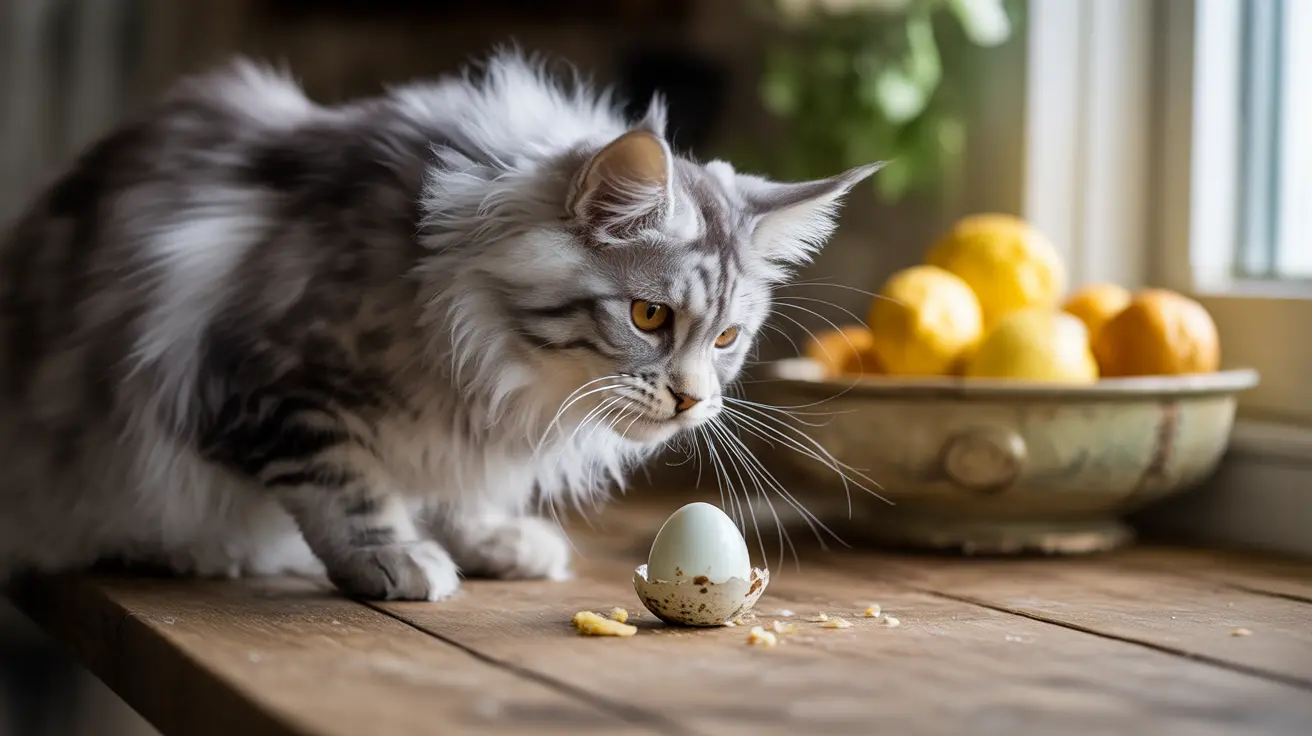The Nutritional Power of Quail Eggs for Cats
Quail eggs pack an impressive nutritional punch, especially considering their small size. They contain higher concentrations of several vital nutrients compared to chicken eggs, making them an excellent occasional treat for cats.
These miniature eggs are rich in high-quality protein, essential amino acids, and various vitamins and minerals that support your cat's health. They contain vitamin A for vision health, B-vitamins for energy metabolism, and vitamin D for bone strength.
Key Nutritional Benefits
Despite their tiny size, quail eggs offer several advantages for feline health:
- High-quality protein for muscle maintenance
- Essential fatty acids for coat health
- Iron and B12 for blood health
- Selenium for immune system support
- Choline for brain function
Safe Preparation and Serving Guidelines
While quail eggs can be beneficial, proper preparation is crucial for your cat's safety. Always cook quail eggs thoroughly before serving them to your cat. Raw eggs can contain harmful bacteria and may interfere with biotin absorption.
Recommended Serving Methods
- Boiled and chopped into small pieces
- Scrambled without seasonings
- Crushed shell (optional) for added calcium
How Often Should Cats Eat Quail Eggs?
Moderation is key when feeding quail eggs to cats. These should be treated as an occasional supplement rather than a dietary staple. For most cats, one quail egg 1-2 times per week is sufficient.
Consider your cat's size, age, and overall health when determining portion sizes. Always consult with your veterinarian before making any significant changes to your cat's diet.
Potential Risks and Precautions
While quail eggs are generally safe for cats, there are some important considerations:
- Allergic reactions (though rare)
- Digestive upset if introduced too quickly
- Risk of bacterial contamination if not properly cooked
- Potential weight gain if overfed
Frequently Asked Questions
Are quail eggs safe and healthy for cats to eat?
Yes, quail eggs are safe and healthy for cats when properly cooked and served in moderation. They provide valuable nutrients including protein, vitamins, and minerals that support feline health.
How should I prepare quail eggs before feeding them to my cat?
Always cook quail eggs thoroughly by boiling or scrambling them. Never serve raw eggs to avoid bacterial contamination. Remove any seasonings or additives, and serve at room temperature.
What are the nutritional benefits of giving my cat quail eggs?
Quail eggs provide high-quality protein, essential fatty acids, vitamins (A, B12, D), and minerals (iron, selenium). They support muscle maintenance, coat health, immune function, and overall vitality.
How often can I feed quail eggs to my cat without causing health issues?
Most cats can safely consume one quail egg 1-2 times per week. However, portion sizes should be adjusted based on your cat's size, age, and overall health condition.
What signs of allergies or digestive problems should I watch for after my cat eats quail eggs?
Monitor for signs such as vomiting, diarrhea, itching, excessive grooming, or changes in behavior. If you notice any of these symptoms, discontinue feeding quail eggs and consult your veterinarian.
Remember, while quail eggs can be a nutritious addition to your cat's diet, they should never replace a complete and balanced cat food. Always introduce new foods gradually and watch for any adverse reactions.






